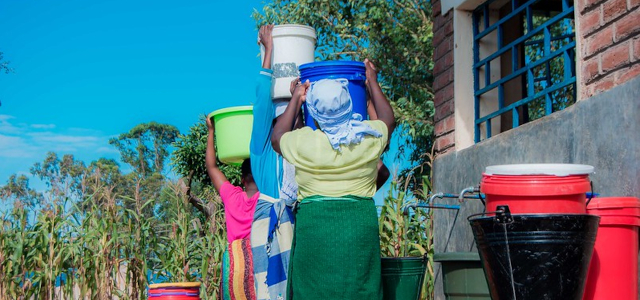The outbreak of Cholera is manifestation of existing water challenges. According to the UNs Children Fund - UNICEF Malawi, 33 percent of the Country’s households have no access to safe drinking water. Additionally, poor practices surrounding transportation and storage of drinking water make waterborne diseases such as Cholera commonplace.
Malawi’s Ministry of Health through a written statement, has bemoaned the situation stating that “there is urgent need to improve access to safe water and coverage on sanitation and risk communication”. The Ministry has called for ongoing community engagement, emphasising that inter district and cross boarder coordination and collaboration is crucial in the prevention and containment of the cholera outbreak.
UNICEF indicates that poor sanitation and hygiene are major contributors to the burden of disease and child survival, costing Malawi US$57 million each year, or 1.1 per cent of national GDP, due to health costs and productivity losses. Six per cent of the population still practice Open defecation and only 26 per cent have access to basic sanitation services, according to UNICEF.
Through the Global Water Leadership Programme, the Global Water Partnership Southern Africa (GWPSA) in collaboration with UNICEF, will be mobilising political leadership to invest in more sustainable climate resilient solutions to help countries build back better especially as they emerge from the COVID-19 pandemic. Through the programme, GWPSA and UNICEF will also be identifying the bottlenecks to the implementation of more sustainable solution to water challenges to ensure that government policies and strategies are addressing those challenges.
GWPSA’s AIP Malawi Coordinator Deborah Muheka says the overall aim of the programme is to get poor and vulnerable people in Low- and Middle-Income Countries to use resilient, safely managed Water, Sanitation and Hygiene (WASH) services, with the aim of achieving better health and well-being for poor and vulnerable people..
“The programme will have interventions that would result in strengthened leadership and collaboration in water resources and WASH governance at the global and national level. We will also be identifying bottlenecks and constraints impeding the sustainable management of freshwater resources and the delivery of inclusive, resilient WASH services to stimulate government-led collaborative action,” explained Muheka.
The Global Water Leadership Programme is being implemented in 10 countries: Malawi, Tanzania, Madagascar, Rwanda, Uganda, Central African Republic, Chad, Bangladesh, Nepal and the State of Palestine.
It is hoped that through the Programme, Governments would see the need for more sustainable water investments and that countries like Malawi would suffer less of waterborne diseases such as Cholera.
GWP & UNICEF’s collaboration is continuation of a long standing partnership that has seen the two organizations collaborate on the production of the Strategic Framework for WASH Climate Resilience which outlines principles and practices that aim to complement and strengthen ongoing national and sectoral adaptation planning processes such as those under the National Adaptation Plans (NAPs) process where WASH sector needs will be a key component.
The Strategic Framework advances sector thinking around WASH and climate change, focusing on investments to increase the resilience of the WASH sector to current climate variability as well as to long-term changes in climate. The Framework highlights ‘Why’ climate resilient development is important, and catalyses selected elements of ‘What to do’ in terms of action that can be taken now to strengthen resilience.
Just as demonstrated with the collaboration on the development of the Strategic Framework, in the implementation of the GWL programme, the two organizations will be merging expertise; GWP on integrated water resources management and climate resilience with UNICEF’s expertise on WASH.
Watch this video here Global Water Leadership Programme - What is it? - YouTube to learn more about the Global Water Leadership Programme.
And for the Strategic Framework for WASH Climate Resilience, read more here Strategic Framework on WASH Climate Resilience - GWP.
